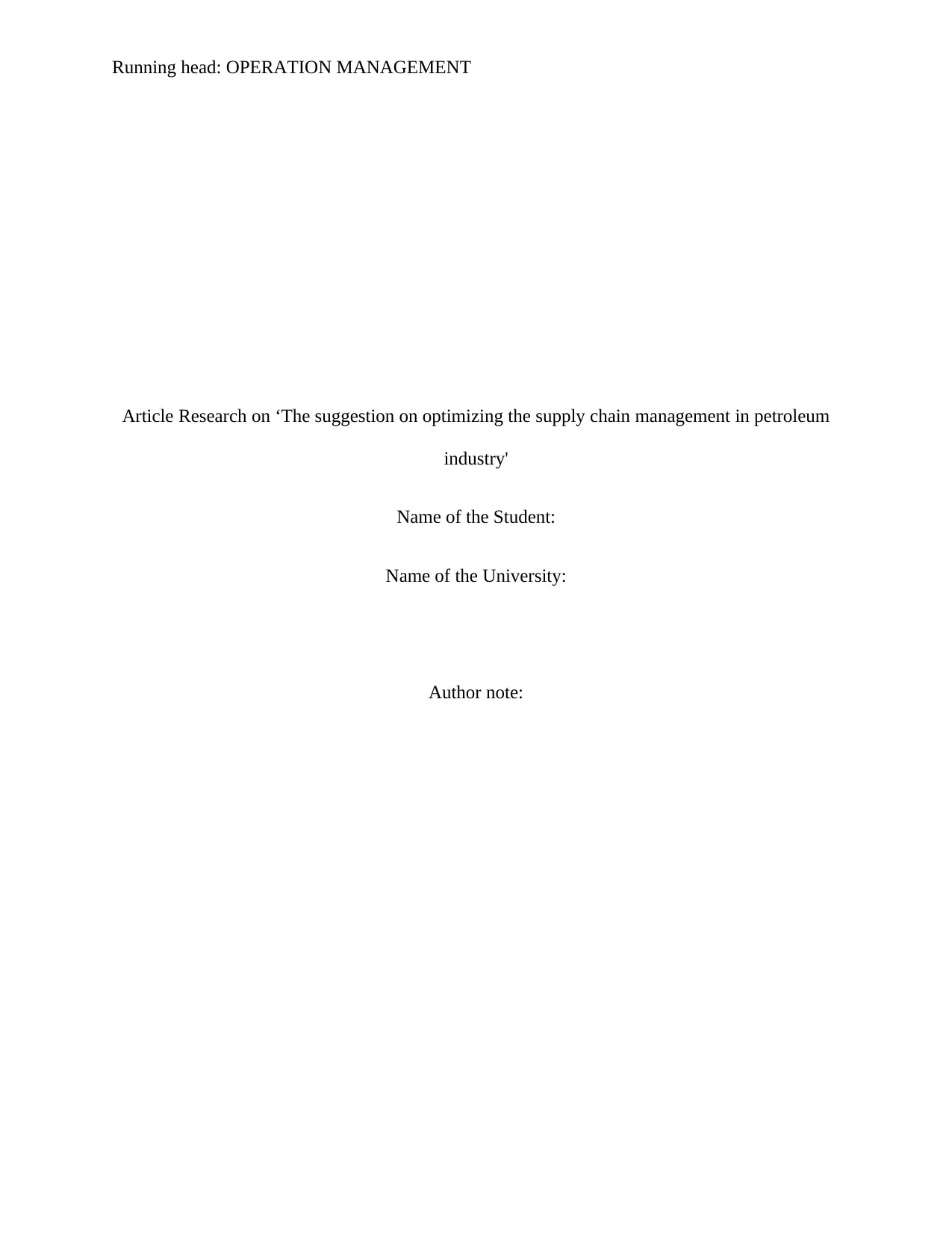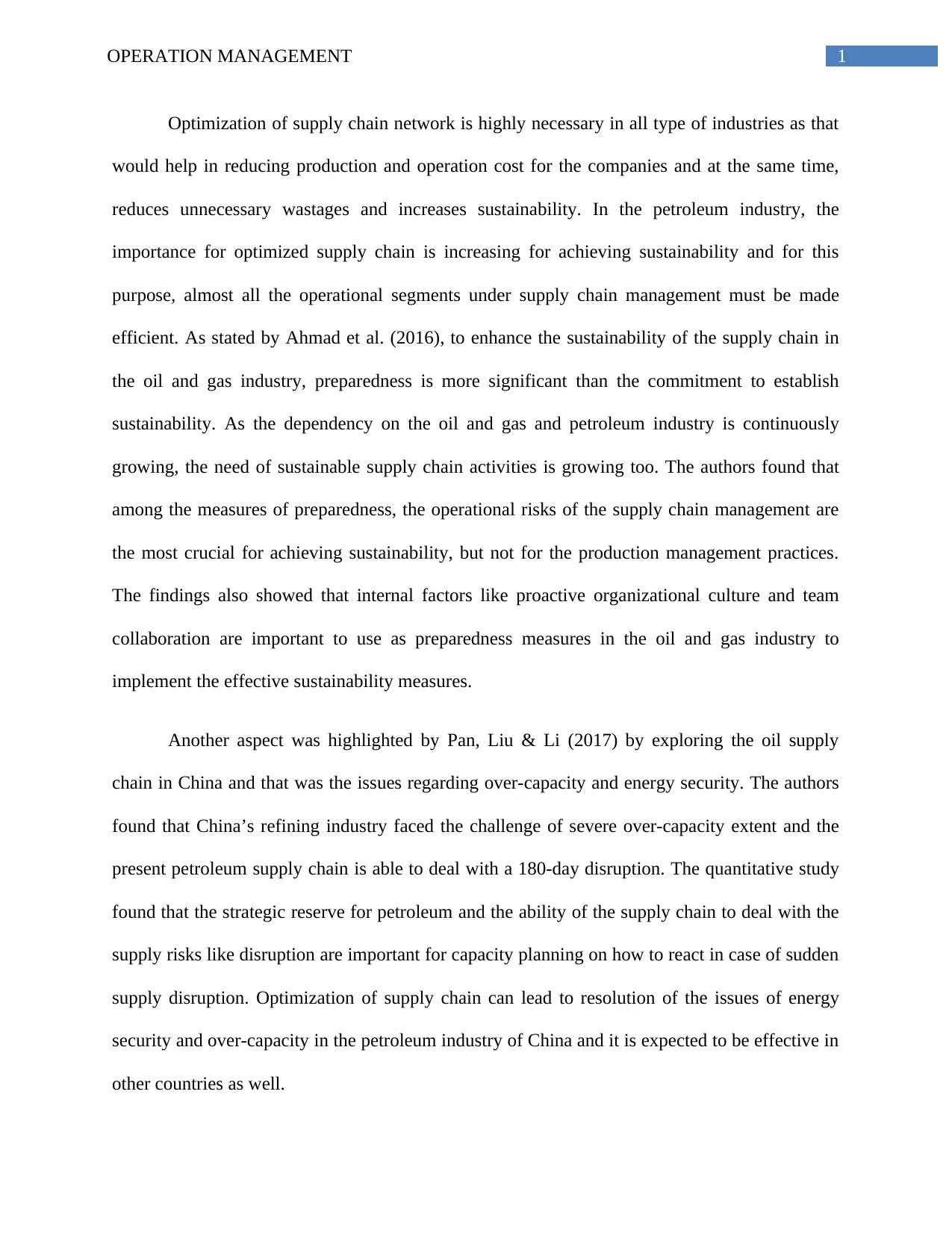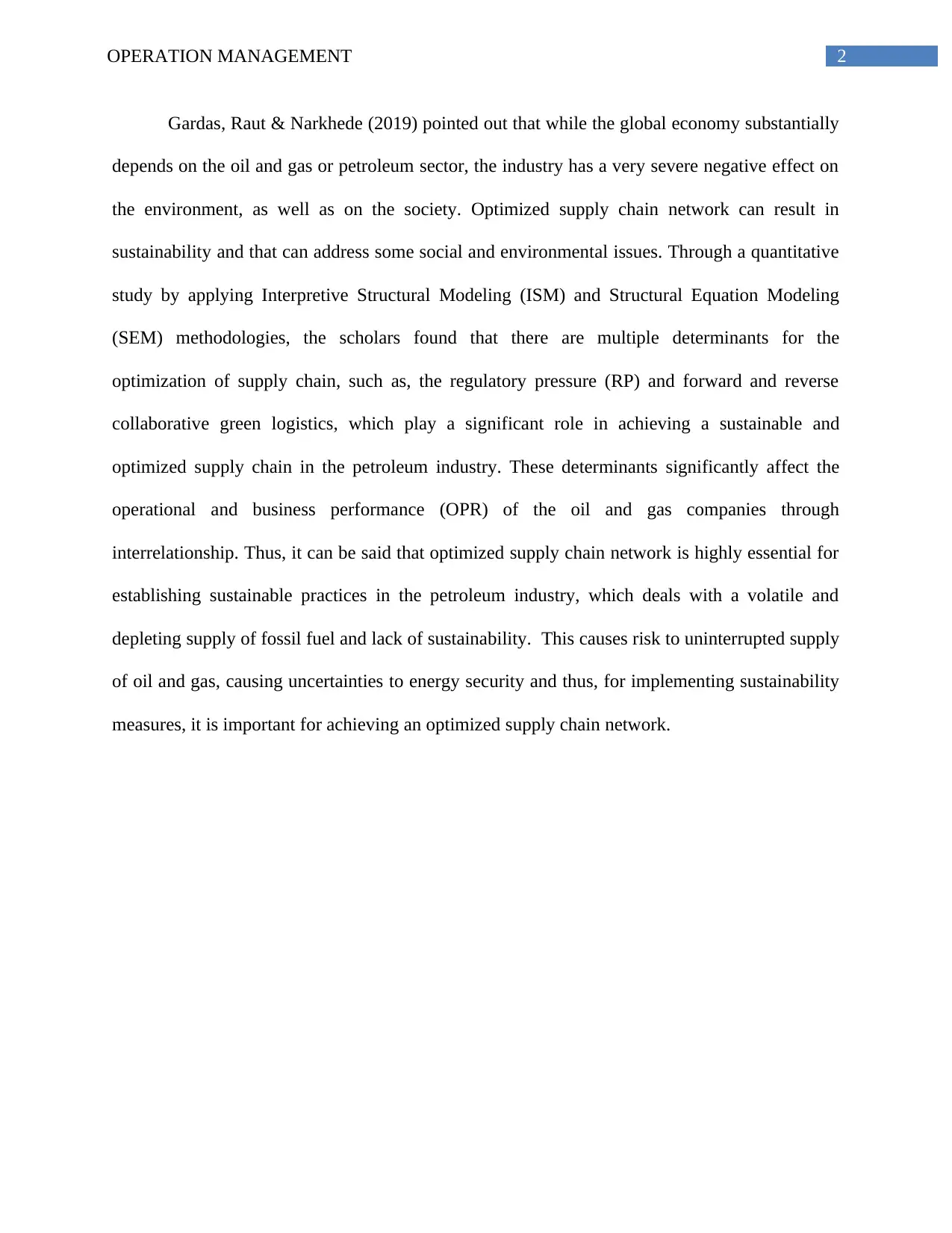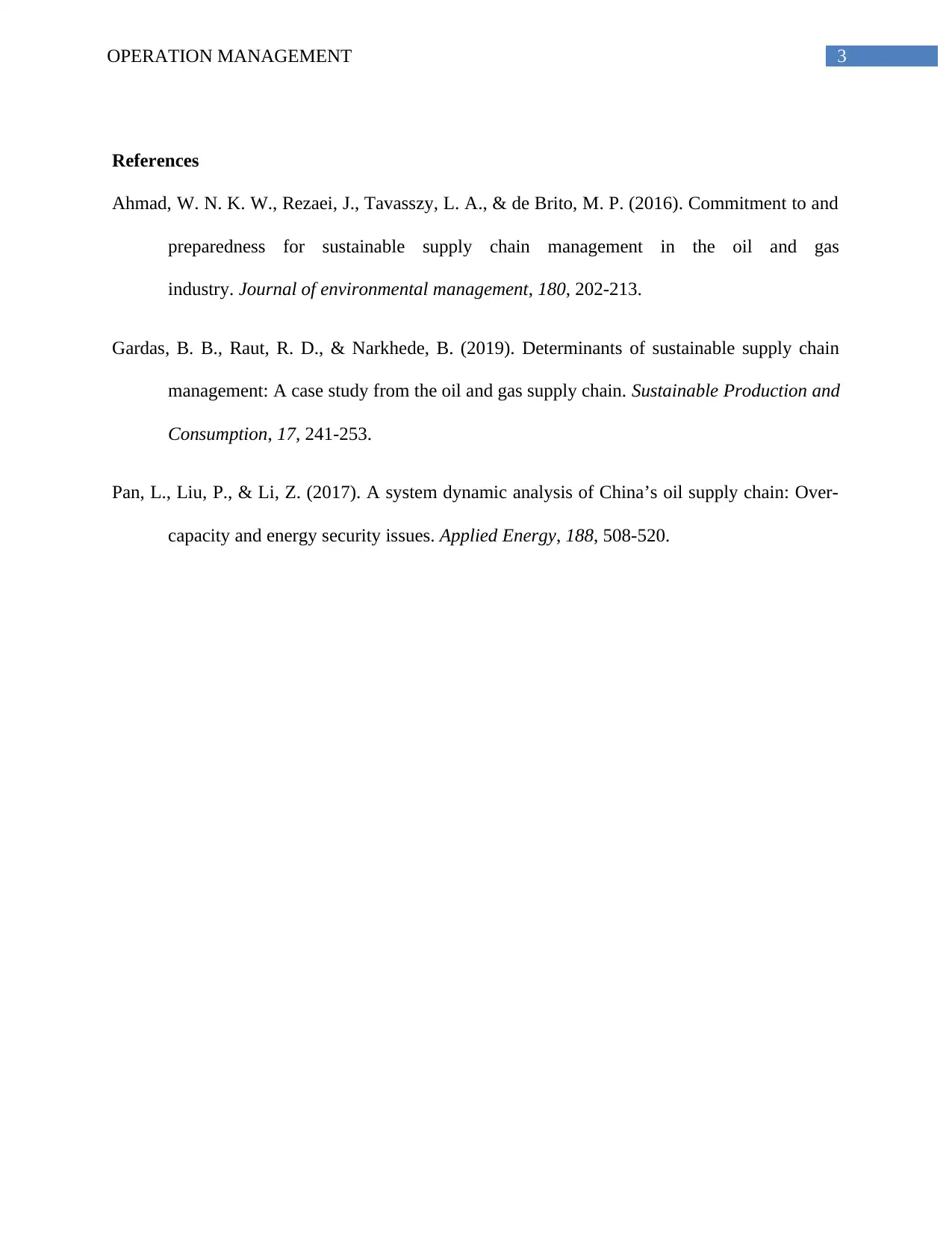Operation Management Report: Supply Chain Optimization in Petroleum
VerifiedAdded on 2022/08/21
|4
|750
|15
Report
AI Summary
This report focuses on the critical need for supply chain optimization within the petroleum industry, highlighting its importance for reducing costs, minimizing waste, and achieving sustainability. The study draws on research from various sources, including Ahmad et al. (2016), Pan, Liu & Li (2017), and Gardas, Raut & Narkhede (2019), to explore key aspects such as operational risks, energy security, and the role of collaborative green logistics. It underscores the significance of preparedness in achieving sustainable supply chain management, addressing issues of over-capacity, and the impact of regulatory pressures. The findings emphasize the need for proactive organizational culture, team collaboration, and strategic petroleum reserves to mitigate supply disruptions and enhance overall performance. The report concludes that optimized supply chain networks are essential for establishing sustainable practices in an industry facing volatile fossil fuel supplies and energy security uncertainties.
1 out of 4










![[object Object]](/_next/static/media/star-bottom.7253800d.svg)